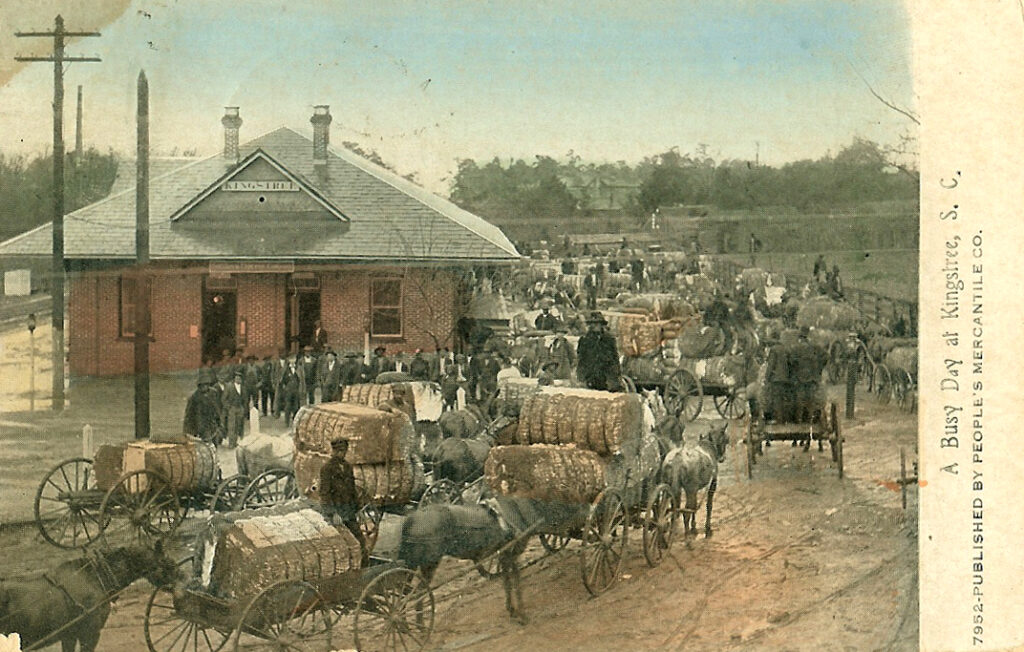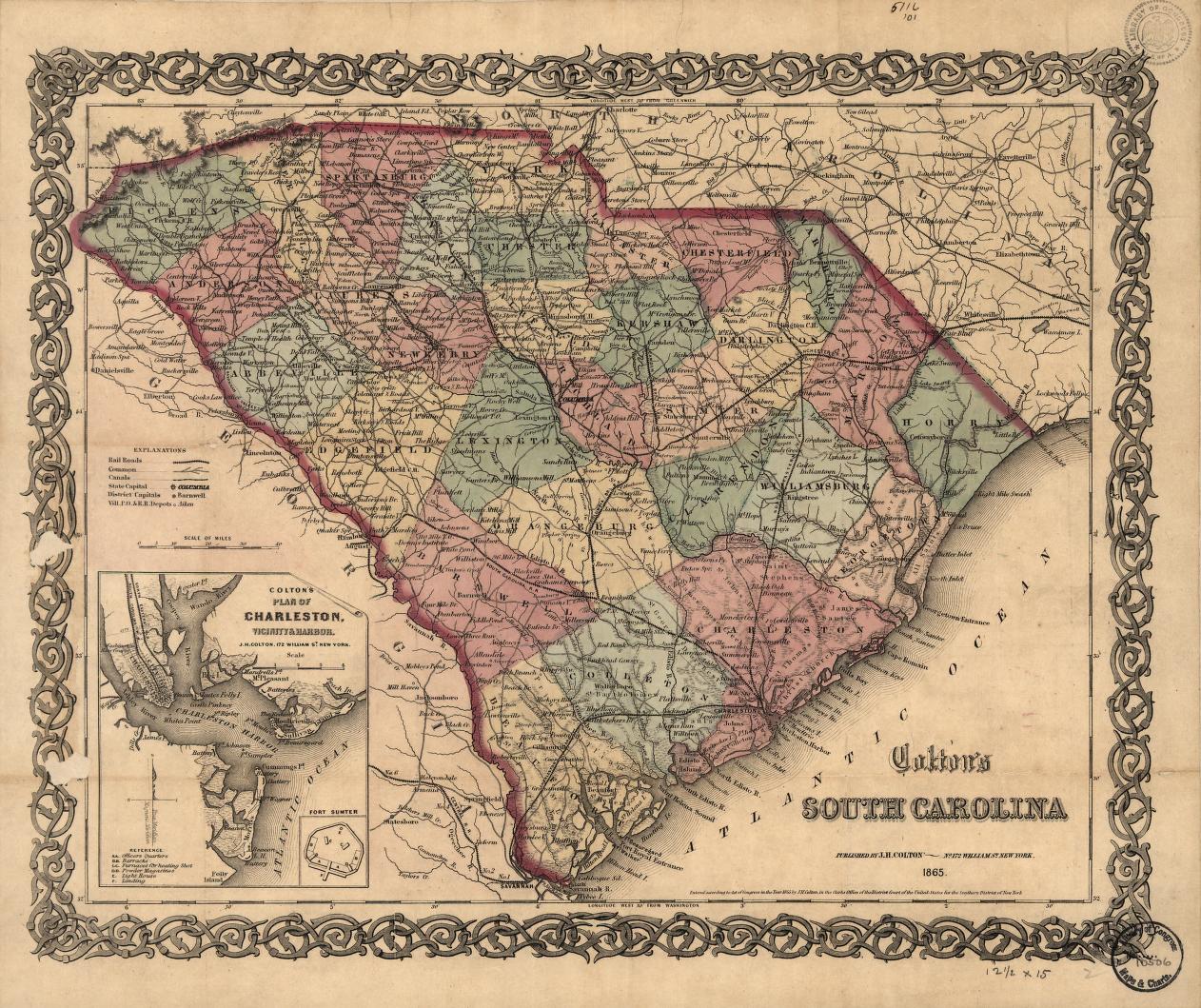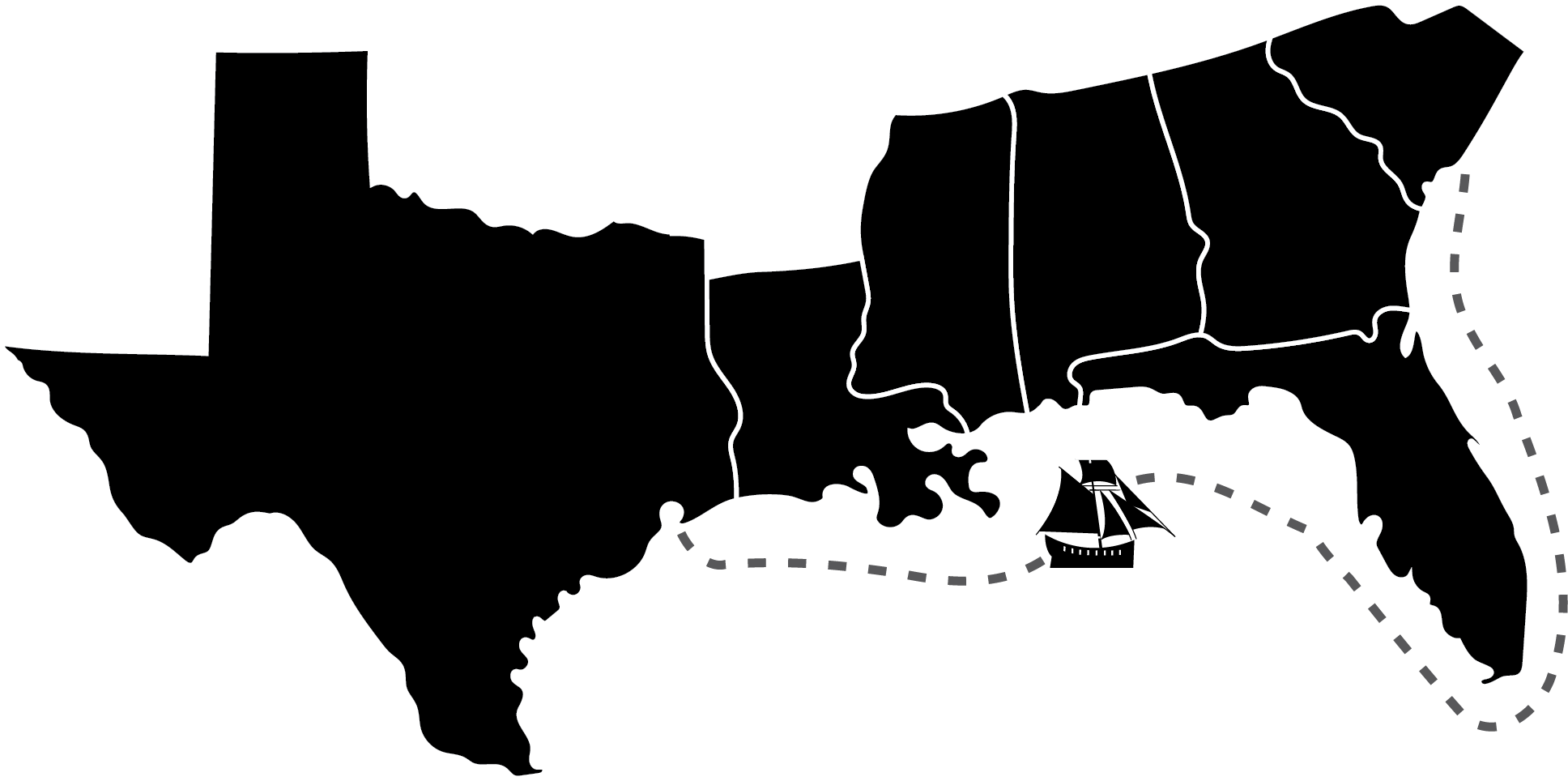
Transportation by train has long been a staple of movement and migration in the United States and South Carolina has had train service since the 1830s. In 1867, Kingstree Train Station played an important role in American history when a request was made for the transportation of 435 freed men, women, and children on January 15, 1867, under the authority of Major General Oliver Otis Howard, Commissioner of the Bureau of Refugees, Freedmen, and Abandoned Lands—commonly known as the Freedmen’s Bureau. After this request was granted, the group for formerly enslaved people embarked on a journey from Kingstree, in Williamsburg County to Charleston, South Carolina which is believed to have been undertaken by train.
Once in Charleston they boarded a vessel destined for Galveston, Texas, but their journey did not end there. These individuals were then transported to Falls County, in central Texas, where they worked under labor contracts facilitated by the Freedmen’s Bureau which is believed to have been on a vessel up the Brazos River which is 1,280 miles in length and runs southeast through Texas from confluence of the Double Mountain and Salt forks to the Gulf of Mexico1.


The significance of this movement extends beyond the physical relocation. It marks a critical moment in the struggle for autonomy and self-sufficiency in the post-emancipation and post Civil War era. The Kingstree Train Station thus serves not solely as a historical site but as a symbol of the broader journeys undertaken by freed individuals seeking to rebuild their lives in the aftermath of slavery.
Through extensive genealogical research and DNA testing, descendants of this group of freed people have traced their family history back to Williamsburg County, revealing enduring connections between past generations and present day residents. Additionally historic records reveal some on the list were present in Williamsburg County in the 1870s and 1880s, which presents the possibility that they migrated back to the area or did not make the journey to Texas with the group.
Surnames from the transportation list include: Bradley, Brockington, Brown, Burgess, Burroughs, Cockfield, Cooper, David, Dozier, Embry, Evans, Fisher, Ford, Fulmore, Fulton, Gamble, Gaskin, Graves, Hanna, Hudson, Ingram, Israel, Jackson, James, Jenkins, Jones, Kidding, Kinder, Lee, Leferage, Liman, Manigault, McCleary, McCullough, McCutchen, Mouzon, Nesmith, Oliver, Pendergrass, Pringle, Robertson, Scarborough, Scott, Shaw, Singletary, Smith, Staggers, Tisdale, Wane, Washington, Watson, White, Wilson, and Witherspoon.
The African American Archives in Kingstree has an exhibit entitled “Anthony Tisdale Shaw and Family reuniting Families across Years and Miles” detailing Shaw descendants’ family history search and making the connection from Marlin, Texas to Kingstree, South Carolina through records research including a Civil War Pension Record which referenced family in Kingstree and the journey to Texas and DNA.
Members of this group have been found on censuses, tax records, death certificates and other documents in parts of Texas including Bastrop, Travis, Tarrant, Montgomery, Harris, McClellan and other Texas counties as well as Williamsburg, Florence and Georgetown counties and other parts of South Carolina.
While many of the descendants of these freed people have migrated from Texas while others remain, each of these surnames is still prevalent in families throughout Williamsburg County, the surrounding areas and in many other cities and towns throughout the United States and beyond. The discovery of this Transportation Request has further expanded the research on this group, their lives and their descendants.
While the Freedmen’s Bureau Transportation Request is the first major document that lists all of these people together it is likely that those who were born prior to the end of the Civil War may be named in slave transactions, plantation diaries, wills, probate and estate settlements, other Freedmen’s Bureau and other documents created prior to these families agreement to work on a labor contract in Texas and join the Transportation Request.
The research continues…
- Hendrickson, Jr., Kenneth E. (1981). The Waters of the Brazos: A History of the Brazos River Authority 1929-1979. Waco, TX: The Texian Press. ↩︎
- Colton, J. H. Colton’s South Carolina. New York, J. H. Colton, 1865. Map. https://www.loc.gov/item/99447241/. ↩︎
- Warner & Beers. Map of Texas., map, Date Unknown; [Chicago, Illinois ?]. (https://texashistory.unt.edu/ark:/67531/metapth192428/m1/1/?q=1870%20texas%20Maps: accessed April 4, 2025), University of North Texas Libraries, The Portal to Texas History, https://texashistory.unt.edu; crediting University of Texas at Arlington Library. ↩︎
